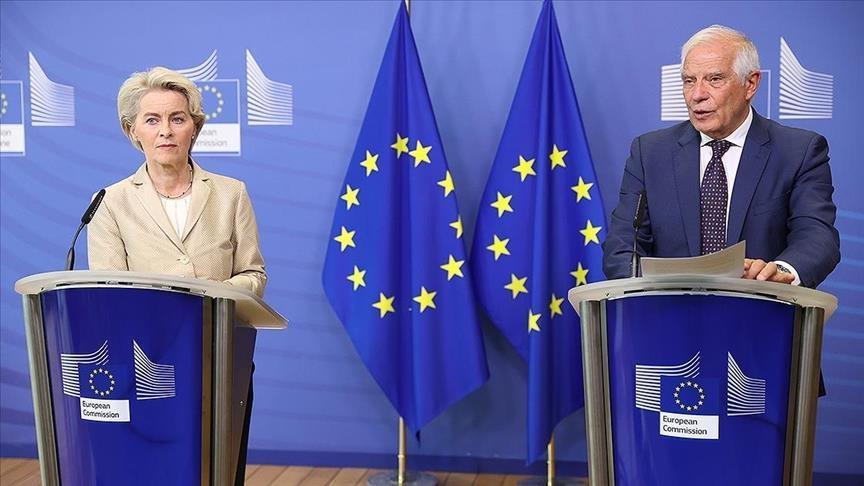The EU on Wednesday proposed a new package of 'biting' sanctions on Russia over its 'escalation' in the ongoing Ukraine war, including an oil price cap.
'Last week, Russia has escalated the invasion of Ukraine to a new level. The sham referenda, organized in the territories that Russia occupied, are an illegal attempt to grab land and to change international borders by force,' European Commission President Ursula von der Leyen told a news conference in Brussels. She was accompanied by EU foreign policy chief Josep Borrell.
The partial mobilization, and Vladimir Putin's threat to use nuclear weapons are further steps on the escalation path, she said, adding that 'we are determined to make Kremlin pay for this new escalation.'
The 8th package of sanctions includes new listing of individuals and further restrictions on trade such as import bans on Russian products with an annual value of €7 billion ($6.73 billion), and prohibiting the export of aviation and chemical industry products, von der Leyen said.
“These new export bans will additionally weaken Russia's economic basis and will weaken its capacity to modernize,” she added.
The draft also proposes additional bans on providing European services to Russia, and a prohibition of EU nationals to be part of governing bodies of Russian state-owned enterprises.
“Russia should not benefit from European knowledge and expertise,” von der Leyen said.
She said the new package also lays “the legal basis' for Russian oil price cap for third countries, previously agreed by G7 countries.
She said although the EU has banned seaborne Russian crude oil into the EU as of Dec. 5, some developing countries still need some Russian oil supplies at low-prices. 'This cap will help reduce Russia’s revenues and keep global energy markets stable,' the European Commission president said.
Borrell explained that the bloc will add new entries to its individual sanctions list, targeting those who are responsible for the mobilization of over 300,000 Russian citizens, and the organization of referendums in Ukraine’s Luhansk, Donetsk, Kherson and Zaporizhzhia regions.
The list will include “proxy Russian authorities” in the four Ukrainian regions, and high-ranking officials of the Russian Defense Ministry, Borrell said.
It will also affect “those who support the Russian Armed Forces by providing army equipment and weapons, including missiles and fighter aircraft, or participate in the recruitment of these 300,000 people,” he added.
Since the beginning of Russia’s war on Ukraine in February, EU sanctions have targeted, among others, Russian President Vladimir Putin and Foreign Minister Sergey Lavrov, banned Russian gold, oil, and coal imports, and the export of luxury goods and high-tech technology, as well as excluded Russian and Belarusian banks from the SWIFT international payment system.
By Agnes Szucs
Anadolu Agency
energy@aa.com.tr


